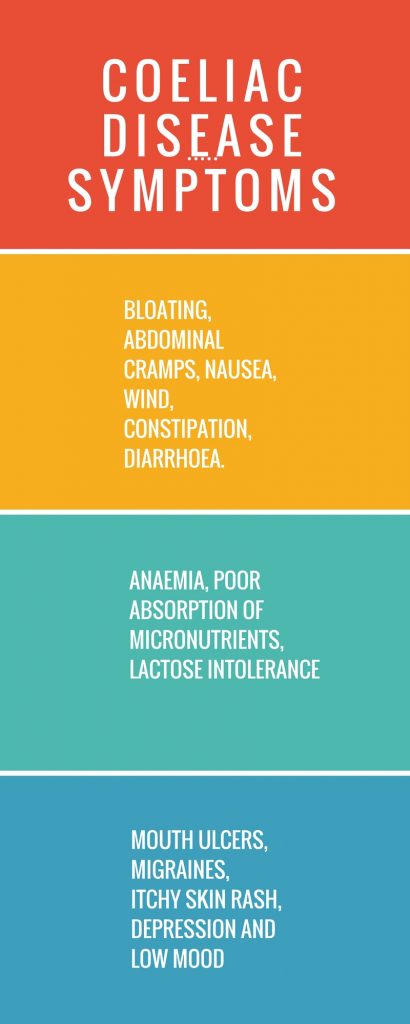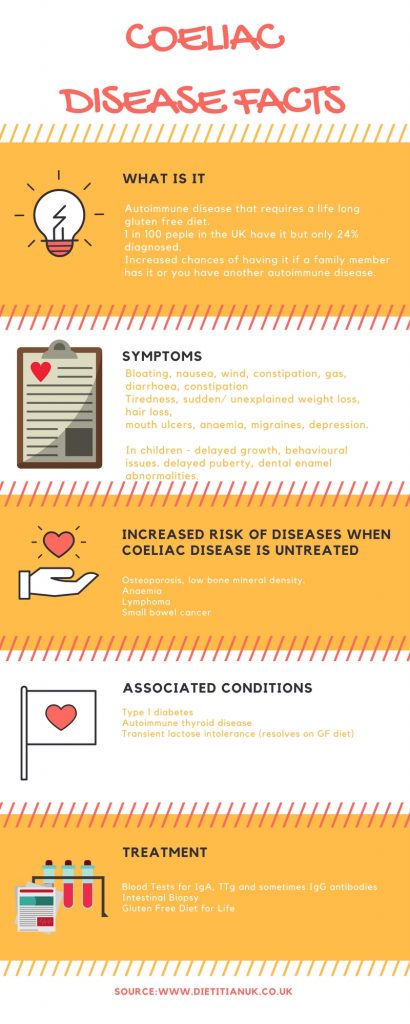Coeliac Disease is often referred to as a gluten intolerance or allergy. Which makes sense as the treament for it is to follow a strict gluten free diet. However it is actually an autoimmune disease, which means it is a disease in which the body produces antibodies and attacks it own tissues. In the case of coeliac disease there are 3 antibodies produced in response to gluten and these can be tested for:
- anti-tissue transglutaminase (tTG) antibodies
- endomysial antibodies (EMA)
- deamidated gliadin peptide (DGP) antibodies
The immune response leads to damage to the villi in the intestinal linings. The villi are where nutrient absorption occurs, they produce enzymes that help digest carbohydrates and proteins, they absorb nutrients into the capillaries around them so the nutrients can then go to the blood stream. Destruction of the villi means that there is firstly less surface area available, so less absorption of nutrients occurs. Secondly the enzymes are not there to digest the food. This may mean that you eat food but just don’t absorb it, instead you excrete it, leaving you lacking nutrients and suffering with digestive symptoms such as abdominal pain and diarhoea. Over time this can have a major impact on your body and be very confusing. If you know you are eating a well balanced diet but you are showing symptoms of nutritional deficiencies or digestive problems this is definitely the moment to see your GP and get advice.


The treament for Coeliac disease is a lifelong strict gluten free diet. This is not a fad diet, or a “choose to be gluten free for a while diet” but a gluten free diet that has to be followed to the letter. I’m not a coeliac but I can’t eat wheat, it won’t harm my villi but it can cause me to be unwell for a few days and is linked to a some digestive issues I have. When I eat out I have to double check and often I find things on my plate than I can’t eat! This can be very dangerous for a coeliac. Even a few crumbs of gluten can cause problems. When on a gluten free diet the villi should recover and nutrients should start be be better absorbed.
What can be frustrating is that Coeliac disease is under-diagnosed and so there are people with it who have no idea. The rise in gluten free diets also means that there are more gluten free options around, but sometimes it can take aware from the severity and the need for a strict gluten free diet. I’ve seen quite a few places advertising gluten free foods with statement such as “we cannot guarantee these foods are made in an area free from gluten”. So gluten free food that is not suitable for a coeliac!
Coeliac Awareness Week is a great time to spread the word and to get people knowing more about these issues so please share and get talking.

Good post!
Very clear information.
Thanks a lot for sharing, all the best!!